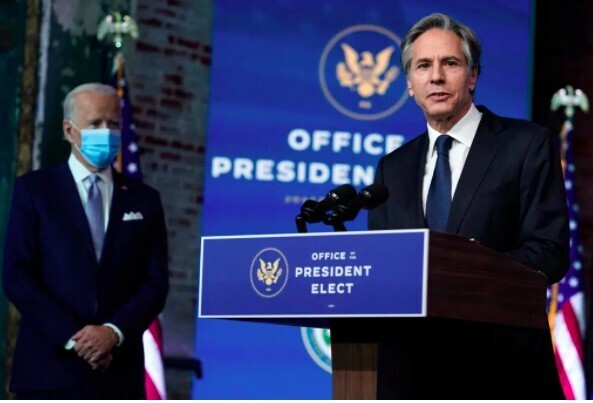Blinken: The U.S. "quietly" supplied weapons to Kyiv long before the Russian invasion.
U.S. Secretary of State Antony Blinken believes that the Biden administration's policy towards Ukraine has been correct and has indeed helped Ukraine withstand the Russian invasion.
Source. The head of the State Department made this statement in an interview with The New York Times.
“We tried, long before the invasion began, starting in September (2021) and again in December, to covertly supply Ukraine with a significant amount of weaponry to ensure they had everything necessary for defense. Items like (anti-aircraft systems) Stinger and (anti-tank missile systems) Javelin played a crucial role in preventing Russia from capturing Kyiv, overtaking the country, erasing it from the map, and truly pushing the Russians back,” Blinken stated.
“In terms of diplomacy: we demonstrated exceptional diplomacy by uniting and maintaining support from over 50 countries, not just in Europe but far beyond, for Ukraine,” he added.
“I worked extensively in the lead-up to the war, including meetings with my Russian counterpart Sergey Lavrov in Geneva a few months before the conflict, trying to find a way to see if we could prevent it,” Blinken said.
He noted that it eventually became clear that this was really about “Putin's imperial ambitions and the desire to recreate a greater Russia, to reintegrate Ukraine into Russia.”
When asked if there were things that the Biden administration could have done differently, Blinken replied: “Well, first of all, what we have left is a Ukraine that has stood firm, and that was not a given, as Putin's ambitions were to erase it from the map. We stopped that. Putin has failed. Ukraine stands. And I believe it also has extraordinary potential not only for survival but for thriving in the future. And that depends on the decisions made by the future administration (of the U.S.) and many other countries.”

photo by Carolyn Kaster/Associated Press
Blinken also stated that one of the reasons the U.S. did not provide Ukraine with certain types of weapons, such as "Abrams" tanks or F-16 fighters, was doubts about whether Ukrainians could operate them effectively.
“At different times, people focus on one weapon system or another. Is it the Abrams tank? Is it the F-16? Each time, we had to consider not only whether it was appropriate to give this to the Ukrainians but whether they know how to use it? Can they maintain it? All of this influenced the decisions we made regarding what to give them and when,” Blinken explained.
“I don’t think the front line will change much compared to how the map looks now,” he said in response to a question about whether Ukraine would have to “concede” its territories.
At the same time, “Ukraine's claims to this territory will always exist.”
“And the question is whether they will find ways, with the support of others, to reclaim lost territories? It is unlikely that Putin will give up his ambitions,” Blinken said, noting that Putin uses ceasefires to rearm.
He also expressed satisfaction that the U.S. managed to avoid “direct confrontation with Russia.”
“We were able to handle this in a way that avoided direct conflict with Russia. Right now, Russia is engaged in all sorts of nefarious activities, so-called hybrid attacks—whether in cyberspace, or through sabotage, or assassinations. These are happening in Europe. And this is something we are working very closely with many of our partners on. But in terms of direct conflict (between the U.S. and Russia)—this is something we had to be very, very mindful of,” the diplomat noted.
Background. Meanwhile, an analyst at the Atlantic Council criticized the West for its failed policy of limiting arms for Ukraine. The “appeasement” policy from Western countries is merely a signal for adversaries to advance further, he emphasized.
Recall that the Washington Post reported how Sullivan in 2022 persuaded India and China to “save the world” from Russian nuclear threats. Sullivan's strategy contained a paradox: Washington wanted Russia to be defeated by Ukraine's efforts, but not in a way that would provoke a nuclear conflict.